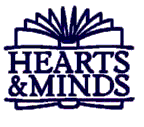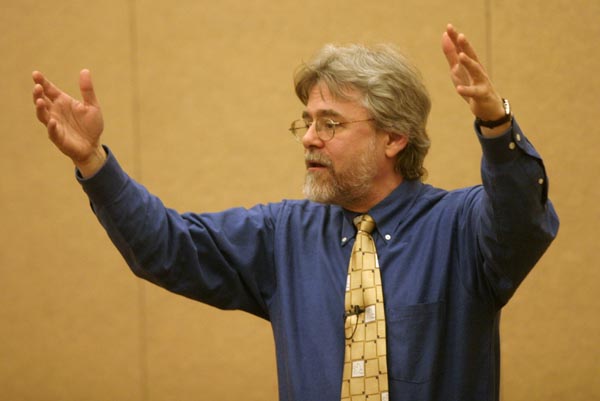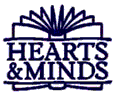It Was Good: Making Art to the Glory of God (Revised & Expanded)

It Was Good: Making Art to the Glory of God (edited by Ned Bustard) and published by Square Halo Books, is one of the few books that I can say with confidence is one of the best we have had the privilege of carrying in our 25 years here at Hearts & Minds. It is a collection of great essays, and seems to be the perfect book for anyone who needs an introduction to thinking faithfully about the arts from a Christian perspective, or that needs more maturity after having read a bit of the classic stuff for starters (Art and the Bible by Schaeffer, say, or Art for God's Sake by Ryken or Walking on Water by L'Engle.) With pieces from working artists like Mary McCleary, Ed Knippers, Karen Mulder, Ted Prescott and others, it is the best collection of its kind in print. And it has just been re-issued in a significantly expanded edition.
Edited by our Lancaster friend Ned Bustard, this collection includes pieces about aesthetics and the arts (like, say, a serious chapter by Adrienne Chaplin called Transfigured on proper notions of beauty, or one by Tim Keller called Glory, on why we need artists) but most are actually about how to do creative, faithful, thoughtful, artwork. (Some chapters are on light, color, truthfulness, and a very creative one on collaboration.) Whether one is an artist, a supporter of artists, or who believes that Christian conviction should lead to engagement with the broader culture (as we've argued here the last few posts) this book simply cannot be beat. We are truly grateful for it's wise presence and happy to be among the few stores to stock and promote it with vigor.
Still, one of the best books we've ever stocked? Yep, it is on our very short list. Let me tell you why I make that audacious claim. It is one of our favs firstly, as I've noted, because it is so very, very good. Important content nicely written with exceptional insight. Further, I like some other stuff about it, stuff that you might want to hear about, since it helps you, blog reader, know a bit about us and what we care about here.
Also:
1. It is lovingly produced, more carefully than most books, I assure you, with color and graphic design and type font and subtitles and such, all by hand by Ned. Ned and his family run a home-based business doing graphic design, and also manage Square Halo Books, which is what some might call a niche press, as they specialize in books on the arts. And, they are Central Pennsylvania, nearly neighbors. We aren't close enough to see each other much, but they do shop here, bringing us samples and tee shirts and greeting from their friends in the art world.
It isn't everybody who knows the leaders in CIVA and gets to edit the work of Mako Fujimuro or Sandra Bowden or Image editor Gregory Wolfe. We love supporting a creative little business that has done such significant networking and publishing among this cadre of underground heroes. I like the rare mixture of hominess and edginess the Bustards live, and it may have something to do with their being Reformed and artistic. Whatever, we love them as they incarnate their solid, stylish book.
2. As I've said, it is lovingly produced, but that ain't all. Although it matters to me that an artifact is made by folks with love in their hearts, if the product isn't that good, good intentions melt away pretty quickly. It Was Good really is an excellent product, a book that looks and feels good and whose content is superlative. It is well written, and this new, expanded edition, is better edited, somewhat re-arranged, and has several new chapters. (Not all publishers really change much when they re-issued a revision. This truly is an expanded version, and the new chapters are remarkable and the older ones touched up.) I know I said it about Fabric of Faithfulness a few posts back, because of the two new parts, but I must say it again here: this newly edited and seriously enhanced edition is so much better than the older version, you should consider getting the new one even if you have the first. Some customers know I sometimes talk people out of buying new books. This isn't one of those times.
3. Square Halo is, in fact, small and indie, and although I wish they had better distribution, and wish they were massively sold through chains and such---we really do want to get the word out, and are glad when good books are well known---there is something cool about being in on something that is such a well-kept secret. I guess the Bustards, and their friends who own Square Halo, and we here at Hearts & Minds, have some sort of a similar view (although I shouldn't speak for them.) We trust that whatever good we are attempting will blossom some how. Or not, Lord willing. Remember that old book of Tom Sine's called The Mustard Seed Conspiracy? That is it: we do our mustard-seed thing and hope for the best. If it blossoms into a big ol' tree that is a spot of healing for creation, thanks be to God. If not, I suppose all the marketing in the world isn't really going to help much.
Maybe I am just using sanctimony to cover for my lazy lack of ability to "ramp it up" and "take it to the next level." But I've read enough Jacque Ellul and Wendell Berry to know the dangers of a manufactured progress that finally is harmful and inauthentic. So, along with mustard-seed projects like classy little Square Halo, we try to make a living, and make a difference. We love selling a book like this because it is a symbol of what we are about, here. If you like us, buy this book. (If you like them, buy it from us.) I suppose it is a bit snide, but if you want Left Behind or The Secret or DVD's of last season's The Apprentice you can go to amazon, since these are the shallow fruits of a mass-produced consumer culture, anyway. It Was Good with its muted but generous color, with fine reproductions throughout, printed on non-tree paper, and its genuine and smart writers and it's righteous vision of a society made whole needs to be hand-sold by staff at a place that cares. Weeeeeee-ah. I say without any false humility that some days I wonder if we are worthy to sell a book like this.
4. It is fun. Joyful. Exciting. This really is nifty stuff: James Romaine riffing on his scholarly work on the Sistine Chapel to open us up to the meaning of creativity? Recording artist, producer and mentor Charlie Peacock on "telling a good story with your life" even as he writes in a contribution called Making Art Like a True Artist? This is great work, energetic and very interesting. Just the artwork shown is fascinating, with Ned's surprising choices of all kinds of (mostly modern) illuminations to accompany the text. I just love books like this, and I hope you do to!
5. Excellent endorsements. I know that sometime authors toss off superlatives as favors to publishers and the business of blurbing can make anybody wonder. But nobody needs to endorse a quiet book from Square Halo; this isn't Tom Clancey or Rick Warren, you know. No, each of the folks who gave endorsements did so, I am sure, out of deep satisfaction in lending their name to a brilliant book, and because they truly believed in the content. From Steve Garber to Luci Shaw, Ken Meyers to Denis Haack, these are folks whose cultural vision has integrity and who we trust. That the book has endorsements from prestigious scholars such as David J. Goa shows further it's reliable importance in the broader cultural scene. That is it cited in good books (like, for instance, The Culturally Savvy Christian about which I posted the other day) is pretty great, too. Maybe only booksellers or editors think like this, but I feel like we are in on something when we have a title like this. Won't you join us?
It Was Good: Making Art to the Glory of God
$5.00 off
you pay only $19.99
read@heartsandmindsbooks OR 717.246.3333




















